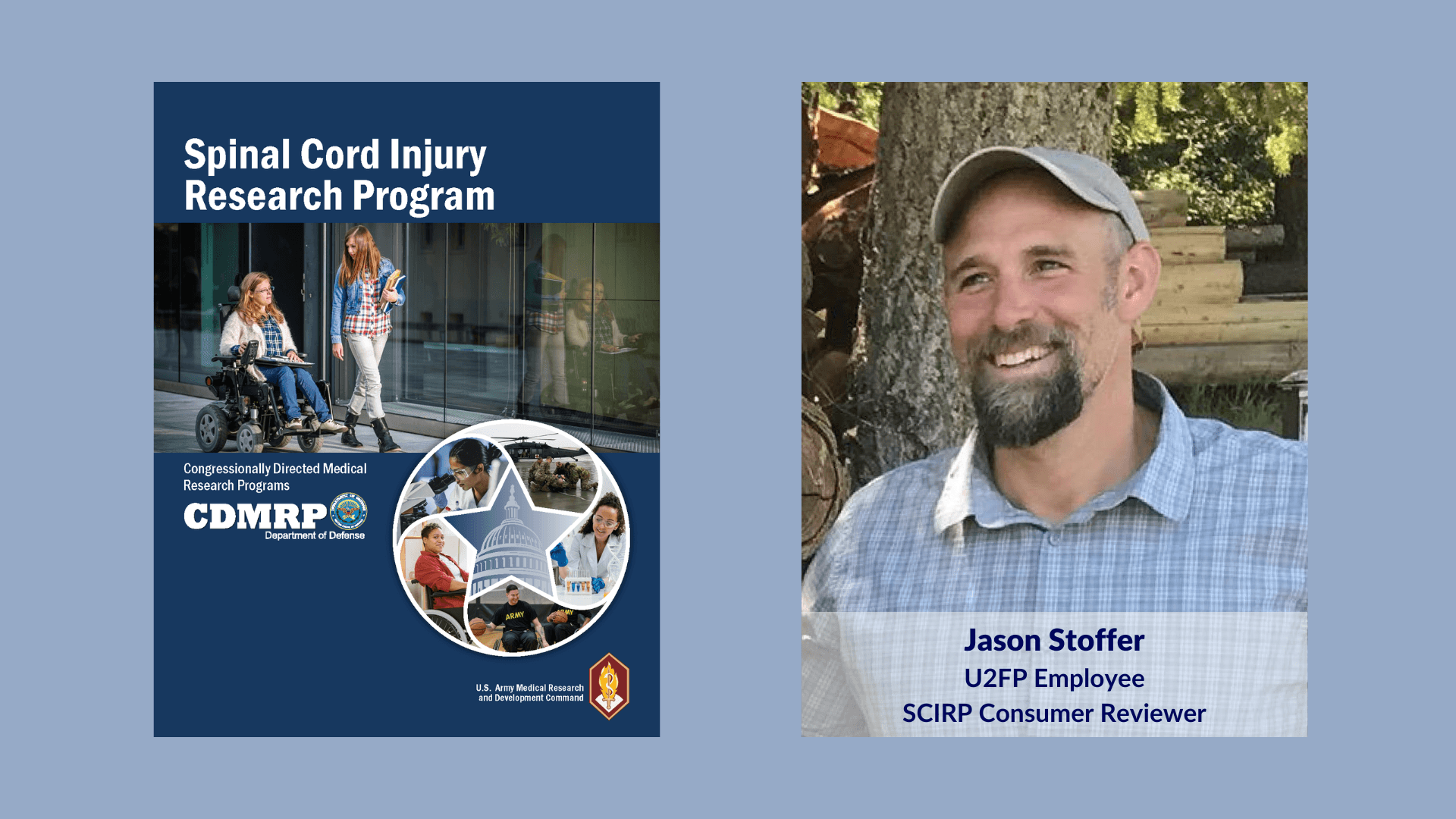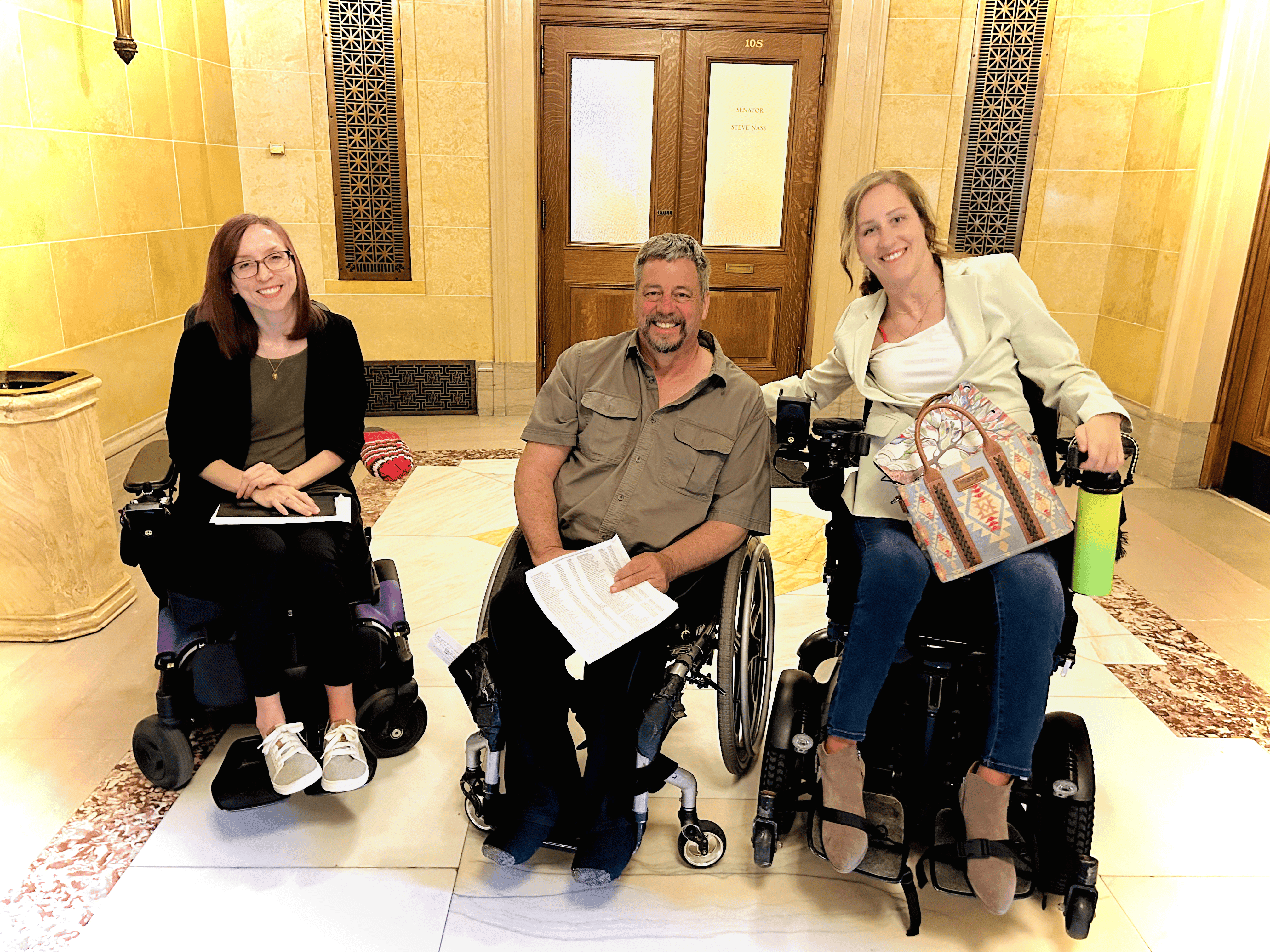
Last October, I wrapped up my third season of serving as consumer reviewer for the Congressionally Directed Medical Research Program (CDMRP), Spinal Cord Injury Research Program (SCIRP), also referred to as “DoD” because the Department of Defense is tasked with managing the program. The work I do with SCIRP is one of the most impactful things I do as an SCI advocate.
As a consumer reviewer, my job is to review research proposals and assess their impact for our community. I work alongside other scientific and technical reviewers to determine whether these proposals are suitable for funding. Each year, SCIRP distributes roughly $40 Million in grant awards for SCI Research.
In an era where government waste and inefficiency has almost become a meme, I’ve been impressed each year with the level of professionalism, scrutiny and care with which this program is run. The requirement of consumer reviewers in their peer review process is just another indication that they want this program to make an impact. It is worth noting that CDMRP is one of the few Federal granting programs that has this requirement.
SCIRP is asking the right questions in their critique of applications:
- Is the science good?
- Is the question scientifically significant?
- Will the research have any impact on the SCI community?
- Are the researchers capable and are they including the input of those living with an SCI?
- Is the budget right?
- Are the statistical models right?
- Will it survive the regulatory pathway?
- Can it make it to the clinic?
The work is difficult but rewarding. You get to read a ton and sharpen your scientific fluency. Most importantly, you get to reassess the critical needs of our community and give them voice. The culminating event is a discussion which occurs over a multiple day period. Everyone on the panel brings their notes and critiques and presents thoughtful information supporting their scores for the proposals. Everyone weighs in for a comprehensive look at each proposal and the result is a score which is passed on to programmatic review.
I have rolled away from that process, three times now, feeling proud of what we accomplished and excited about the state of SCI research. Unfortunately, the information that fuels that yearly shot of enthusiasm can go no further than the inside of my cranial vault. For the integrity of the program, confidentiality rules the day. Outside of that panel, there is no discussion of the projects, researchers, panel participants or panel topics. Even if your cat is just dying to know!
Unite to Fight Paralysis has been pairing up knowledgeable consumer reviewers with the SCIRP program for years. This is just another way that U2FP is trying to do its part to improve the lives of those living with SCIs. Nominating qualified reviewers to SCIRP compliments our ongoing efforts to get people with lived experience to consult in labs (as we’re doing with our own Lab Rats program). The SCI community’s voice matters and helps to expedite and sharpen the focus of scientific research.
You might be interested to know that U2FP’s Cure Advocacy Network (CAN) employs some of the same best practices used in the SCIRP review process for our state-level research grant programs, holding the money accountable and minimizingminimizes waste in the same way. Namely:, the voices of folks living with or affected by SCI are at the decision-making table, there is an imperative to move research along the translational pathway and into the clinic, and it also uses a tiered granting framework to fund the best ideas with the most appropriate award mechanism.
More Resources
- Check out U2FP's CureCast conversation with SCIRP representatives Jacqueline Roche and Dr. Melissa Miller to learn more about the program.
- See the projects that SCIRP has funded here. (Select “Spinal Cord Injury Research Program”, Select the relevant years, Select “All Award Types”)
If you’re interested in reviewing for SCIRP or in participating as a consultant in a lab, just email me at jasonstoffer@u2fp.org and I’d be happy to help get you connected!

















